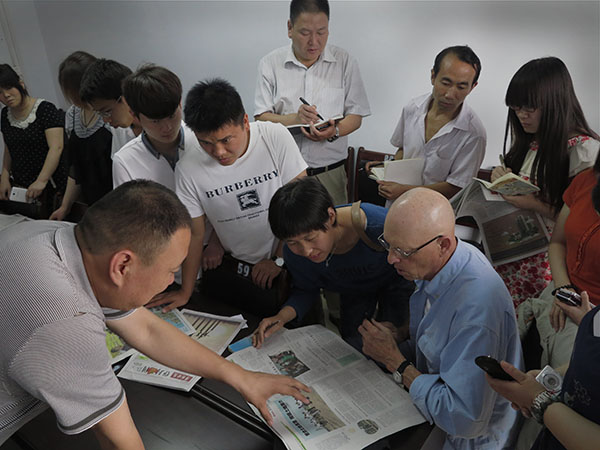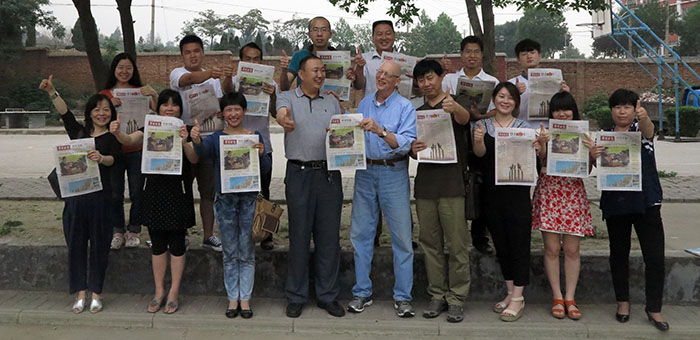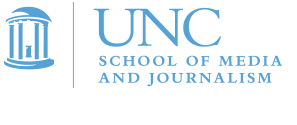Our intrepid traveler is winding up a month of lecturing at conferences, newspaper workshops and universities in Shanghai, Chongqing, Hefei and Zhengzhou, China. This follows last summer’s Fulbright to Beijing, where he taught at three universities, and where at one workshop, he was introduced as “Mr. Joke.” Herein follows Mr. Joke’s reprise.

“It was my good fortune to be wrong,” writes travel writer Paul Theroux in the 1986 classic, “Riding the Iron Rooster: By Train Through China.” And he concludes, “Being mistaken is the essence of the traveler’s tale.”
Indeed.
In my last few days in China I too made a serious misjudgment that later looped around 180 degrees.
After three days of lecturing to large, impassive, unresponsive audiences of stony-faced major metro daily reporters and editors, I had concluded that our message about community journalism was falling on deaf ears.
Last night my hosts took us to see an outdoor pageant dramatizing in music, dance and light effects the ancient history of the region and its Shaolin Buddhist Kung Fu tradition.
But as I watched the spectacular sound and light show, I couldn’t help but be distracted by what felt like my failure to connect with all those journalists earlier this week.
Then this morning at breakfast, somebody told us, we’re going to visit a new community newspaper. I perked up. Off we went; after a brief drive we pulled into a modest courtyard, piled out of the car, went in a door, down a hall, and into a small room.
And there, assembled were about a dozen people who, when they saw us, stood and burst into applause.
This, I was to learn, was the entire staff of a new community newspaper, the weekly Deng Feng Golden Edition. Just two-weeks old and already a runaway success. The publisher and editor claim that Professor Chen Kai and I get part credit! How could that be? We are treated like some royalty, as they shower us with editions of their paper for our autographs.
As Prof. Chen Kai (Karen) and I critiqued, coached and evaluated their handsome pair of editions, the little staff huddles over and around like a razzle-dazzle football team brainstorming their next play.
And they had a great back story to tell too: the nearby Zhengzhou Evening News launched the Golden Edition for the smaller city (200,000) of Deng Feng in late May when the media group’s visionary director, She Da Dong, realized that Deng Feng was a market ripe for the plucking.
The first week’s paper was met with such success that they doubled their ad revenue in one week. Much of the credit goes to publisher Yuan Jian Long, an affable and well-connected local journalist who laughs when he tells us, “I don’t need a business card; my face is my business card.”
Then turning serious, he explains, “The community newspaper is what binds society together.”
Publisher Yuan is ably assisted by a farmer-turned-journalist, Zhang Chao Hui, a self-taught photographer who serves as the managing editor.
Zhang told us that he and Mr. Yuan attended our lecture in Zhengzhou and that he was so excited about our presentation that he got out of bed at 4 the next morning to write down his thoughts and reflections.
Zhang told us, “The community newspaper is where I feel my value can be achieved.”
So the man feels that rush one gets when a successful newspaper hits the streets. Zhang told us he’s so excited he can’t sleep.
At the coaching session this morning, I hear more such excitement. Reporter Li Hui, a saucy education writer, tells me brightly, “I realize what I’m doing is important for my town, for my society, for China.”
Why am I so excited about this start-up? Because we believe it represents the future of Chinese journalism. And we’re not alone. There is big money and big government that is interested too.
We learn that in this province of Henan, there are about 144 cities this size (roughly the size of Durham, N.C.) Multiply that times 32 (the number of provinces) and that gives you the approximate number of Chinese cities that are potential markets for community newspaper start-ups.
Before the Golden Edition, there was no local newspaper. Well…there is the party paper, but I am told nobody pays much attention to it.
When the Golden Edition first hit the streets in late May, Mr. Yuan tells us, “People called in, wanting to subscribe. But we told them, it’s free! And they couldn’t believe it!”
For the small staff, Delivering the free weekly 30,000 is a daunting challenge — but one they relish.
From the publisher down to the greenest reporter, the Golden Edition staff individually hand delivers many of the papers to their readers, make one to one contacts along the way.
Mr. Yuan tells us, “It helps the journalists connect with their community. We got very positive feedback,” adding with obvious pride. “The first time, (the paper came out) people said, ‘what is this?’ and when the second edition came out, people saw us coming and said, ‘Hey, here comes the paper!’”
Music to any publisher’s ears.
And to mine too.
Long live the Deng Feng Golden Edition!


